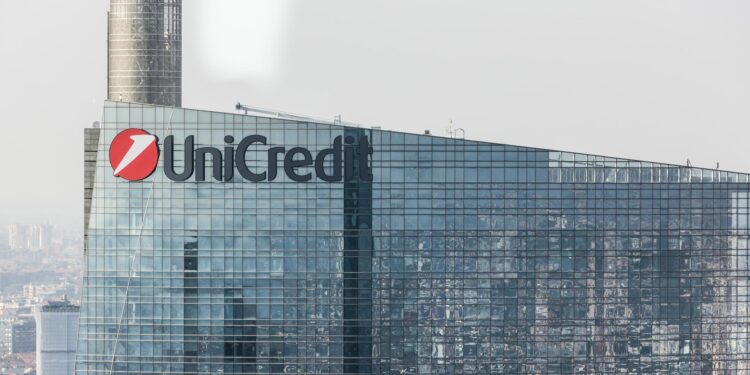Italy’s second-largest bank, UniCredit, recently reported an impressive fourth-quarter profit, surpassing expectations and raising shareholder returns. This comes amidst ongoing interest in the bank’s merger and acquisition strategies.
For the fourth quarter, UniCredit reported a net profit of 1.969 billion euros ($2.03 billion), outperforming analyst predictions of 1.803 billion euros as gathered by LSEG. Additionally, their revenues hit 6 billion euros, a bit higher than the projected 5.898 billion euros.
Some key points from this quarter include:
– A return on tangible equity of 11.5%, down from 19.7% in the previous quarter.
– A CET 1 capital ratio, which measures a bank’s solvency, at 15.9%, slightly down from 16.1%.
– Operating costs were 2.5 billion euros, showing a 9.5% rise from the last quarter.
The bank’s full-year net profit saw an 8.1% increase, reaching 9.31 billion euros. They have promised to boost shareholder returns by 2025, raising the cash dividend payout to 50% of net profit, up from 40% in 2024. Furthermore, they aim for a RoTE performance exceeding 17% for 2025-2027, compared to 17.7% in 2024.
CEO Andrea Orcel, in a statement alongside the results, mentioned that UniCredit is moving into the next phase of their strategy. He emphasized the bank’s commitment to growing and differentiating itself from competitors, closing the valuation gap, and positioning UniCredit as a leading force in European banking.
However, the bank has projected 2025 full-year revenues to exceed 23 billion euros, falling short of the 24.8 billion euros achieved last year. This reflects the ongoing “compression” of UniCredit’s business in Russia and a “moderate decline” in expected net interest income—the gap between earnings from loans and deposit costs.
UniCredit has been a central player in Italy’s recent consolidation efforts since last year. This includes its unexpected acquisition and subsequent increase of a stake in Germany’s Commerzbank, and its bid to take over local competitor Banco BPM by the end of 2024. Banco BPM has thus far turned down UniCredit’s initial proposal, though Orcel referred to it as merely “a fair starting point.”
The German government criticized UniCredit’s “very aggressive, very opaque, untransparent” bid for Commerzbank, and Rome has been cautious domestically. The Italian government aims to establish a third major banking entity alongside Intesa Sanpaolo and UniCredit, contributing to a complex landscape for Italian deal-making. On February 2nd, UniCredit revealed a 4.1% stake in Italy’s leading insurer, Generali Group, but clarified there was no “strategic interest” in this move.
Italy’s legislative framework includes “golden powers,” allowing the government to intervene or impose conditions on domestic and foreign business takeovers in essential sectors like defense, energy, communications, and banking.
Investors are keenly observing whether UniCredit will choose one of its merger goals to focus on, or ambitiously try to pursue both. Orcel stated in his Tuesday address, “Any inorganic growth must improve our standalone case and meet our strict financial and strategic requirements.”















